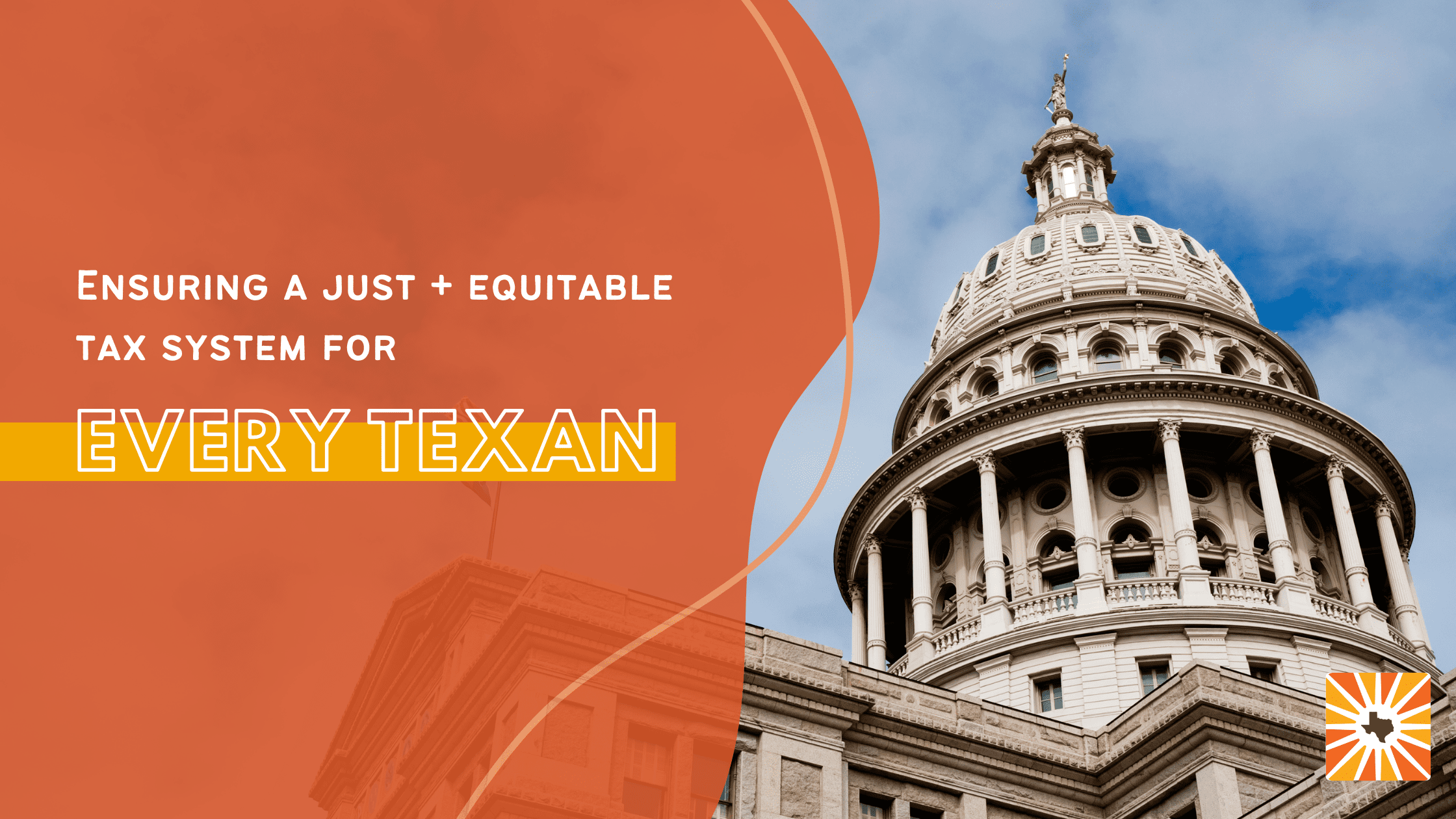Undocumented immigrants are essential contributors to Texas’ economy and robust job growth. Regardless of their citizenship or immigration status, immigrant families pay state and local taxes to support vital public services that benefit all of us, such as schools and colleges, roads, parks, and libraries. A new report from the Institute on Taxation and Economic Policy (ITEP) confirms in 2022 1.9 million undocumented Texans paid a hefty $4.9 billion in state and local taxes.
Undocumented Texans pay their fair share of state and local taxes.
Without a state income tax, Texas’ state and local tax system relies heavily on sales and property taxes. Most revenue (58%) contributed by undocumented Texans (nearly $2.8 billion) was paid in sales and excise taxes, while 37% (about $1.8 billion) was paid in property taxes that support public education and local government services. Because Texas relies so heavily on its “two-legged stool” tax structure, undocumented Texans are even more likely to pay the same taxes as other Texas residents when compared to those undocumented in other states.
The ITEP report estimates the effective tax rate — the percentage of annual income paid in taxes — for undocumented immigrant families. In Texas, the effective tax rate for undocumented Texans is 8.9%, the 15th highest in the nation. Given the regressive nature of Texas’ tax system, it is unsurprising that undocumented immigrants’ effective tax rate is higher than most. For perspective, the state’s wealthiest taxpayers (the top 1%) pay an average effective tax rate of just 4.6%, half of what undocumented Texans pay.
Texas is one of six states that raised more than $1 billion in tax revenue from undocumented immigrants. On average, undocumented Texans pay $2,615 in state and local taxes per person. This means that public services receive an additional $1.3 billion in tax revenue for every half a million undocumented immigrants living in Texas.
Undocumented immigrants pay federal taxes too but are denied many benefits.
Undocumented Texans contribute to federal taxes and may help lower the federal deficit by a net $0.9 trillion over the next 10 years. Yet a substantial portion of their contribution goes to payroll taxes, which fund the major social insurance programs they are barred from accessing. In 2022, undocumented immigrants nationwide paid $25.7 billion in Social Security taxes, $6.4 billion in Medicare taxes, and $1.8 billion in unemployment insurance taxes. Despite contributing nearly $34 billion to the U.S. social safety net, undocumented Americans are unable to access that support.
Undocumented immigrants also can face higher income tax payments than U.S. citizens due to laws that deny them and their U.S. citizen family members significant tax credits, such as the Earned Income Tax Credit and Child Tax Credit. Many do not claim tax refunds at all because of lack of awareness, fear of immigration consequences, or limited access to tax preparation help.
Granting legal status to undocumented immigrants would not only raise their wages, but also enable them to claim more credits and refunds to which they are entitled. It also would mean more state revenue. If all current undocumented immigrants received work authorization, their annual state and local tax contributions would increase by $474 million, reaching $5.3 billion. This new revenue would include an additional $215 million from sales and excise taxes, $157 million from property taxes, and $102 million from other taxes.
Undocumented Texans are critical contributors to the so-called “Texas Miracle.” Every Texan wants to provide for their family and improve the state — regardless of their legal status. This study reminds us how important our undocumented family, friends, and coworkers are to the economic productivity of Texas communities from Amarillo to Brownsville.

